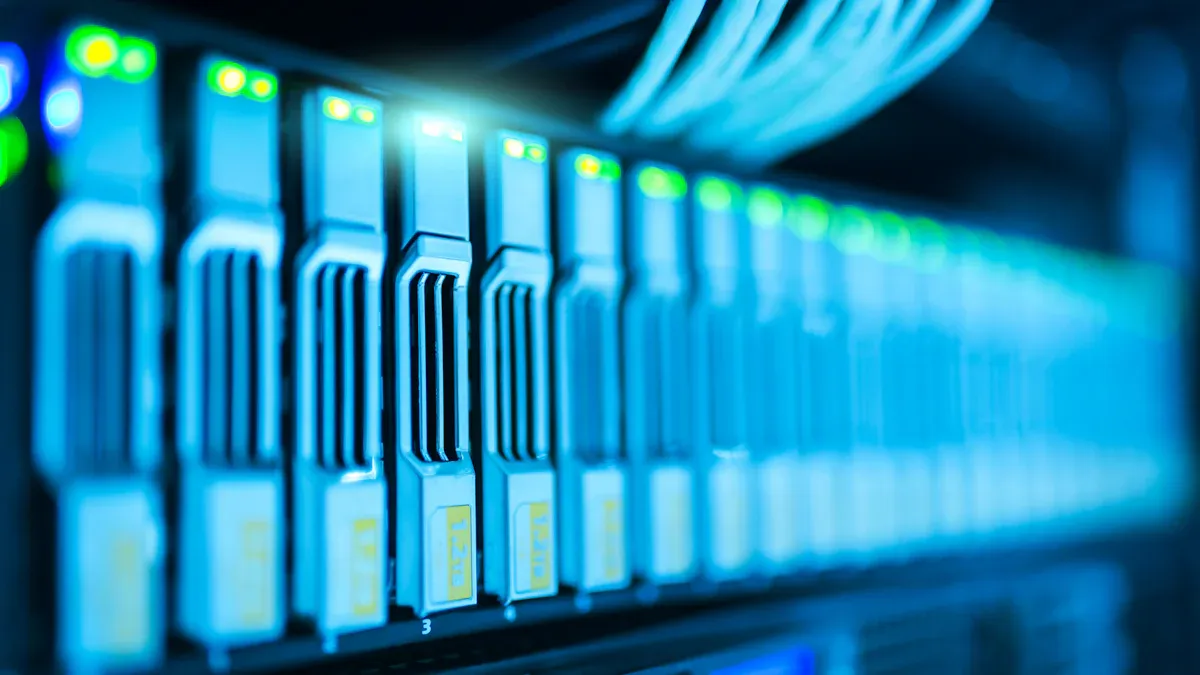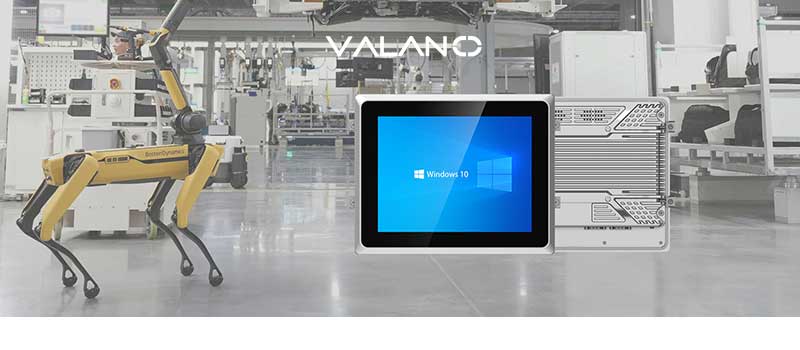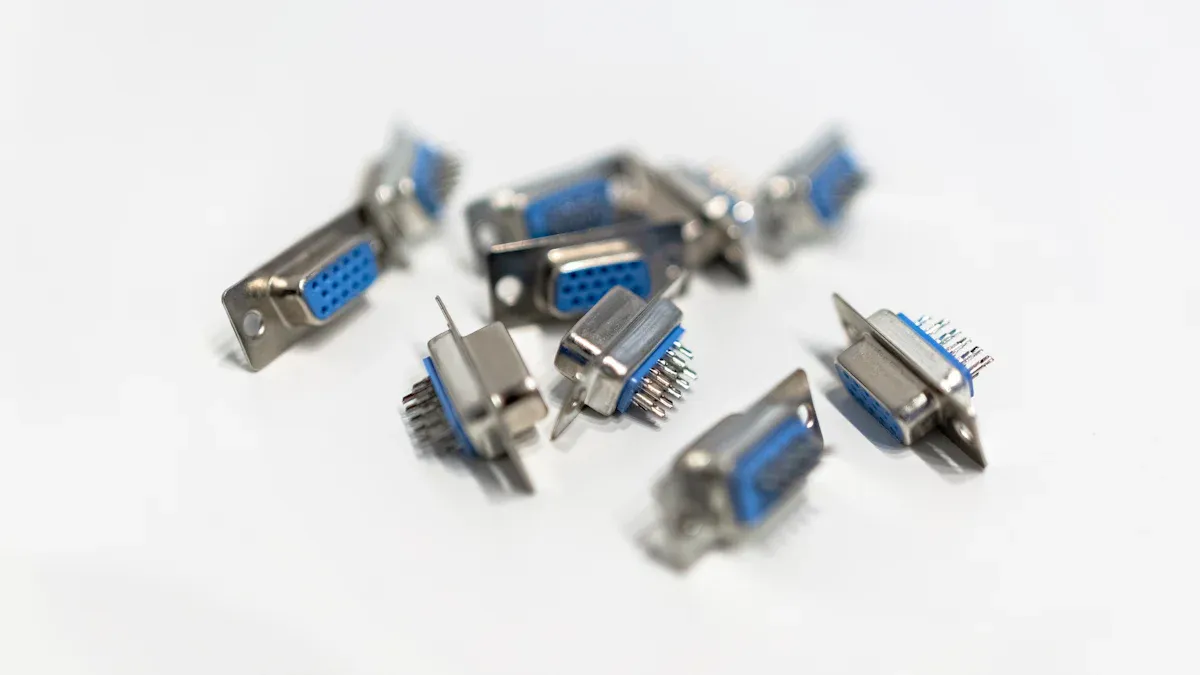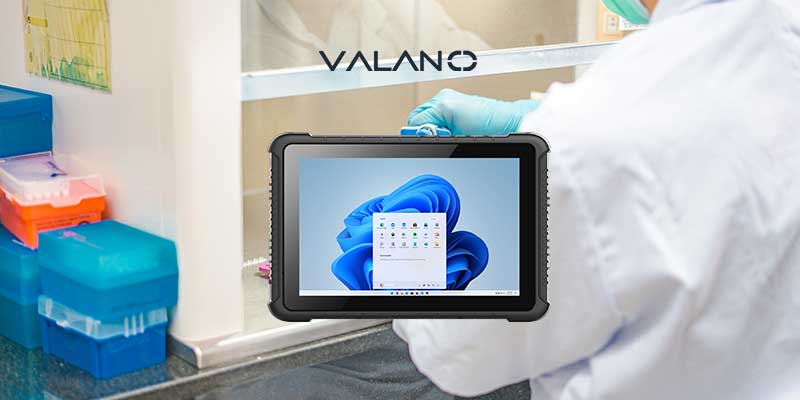
Choosing the right HMI Panel PC can improve your work. It helps make tasks easier, saves time, and works better. To pick the best one, follow three simple steps. First, figure out what your job needs. Next, check the features that fit those needs. Lastly, think about your budget and how useful it will be later. By doing this, you make sure your choice fits your goals and works well for a long time.
Key Takeaways
Think about your work needs before picking an HMI Panel PC. Know what jobs it must do to match your needs.
Look at details like processor speed, memory, and screen features. These decide how well the panel PC will perform.
Think about where the HMI will be used. Pick a tough design if it will face dust, water, or heat.
Compare cost and quality. A good HMI Panel PC can save money on fixes later.
Choose designs you can upgrade. Modular systems let you add features as tech improves, keeping it up-to-date.
Step 1: Know What Your Job Needs
What Tasks Will It Do?
Figure out the HMI Panel PC's job.
Think about what you need the HMI Panel PC to do. Will it run machines, watch over production, or handle data? Each job needs different abilities. For example, a PC for robots might need strong computing power. A PC for simple tasks might focus on being cheap.
Also, check what software and hardware it will work with. It should connect easily to your current system. For instance, if you use a PLC network, make sure the HMI supports it. This avoids problems and keeps things running smoothly.
Make sure it works with your current setup.
Look at the software and displays your system uses. The HMI Panel PC must handle these well. Its memory and processor are very important. If they are too weak, the system might lag or fail. Always check that the HMI fits your setup to avoid spending extra money later.
Think About the Environment
Check temperature, humidity, and dust or chemical exposure.
The environment affects how long your HMI Panel PC lasts. High heat can cause it to overheat. Humidity might harm its parts. Dust and chemicals can break it if it’s not protected.
Environmental Factor | Why It Matters |
|---|---|
Temperature | Keeps the device working properly. |
Humidity | Protects the hardware from damage. |
Dust | Stops the device from breaking down. |
Chemicals | Ensures it handles cleaning and chemicals. |
Decide if it needs to be waterproof or tough.
If your workplace has water or dust, pick a rugged HMI. Look for devices with IP65 or IP66. These protect against water, dust, and cleaning sprays. They help the HMI last in tough conditions.
Follow Industry Rules
Check if it meets safety and industry standards.
Industry rules keep devices safe and reliable. In risky places, look for certifications like Class I, Div. 2 or IEC 60079-0. These show the device is safe for certain conditions. IP ratings also tell you how well it resists dust and water.
Certification | Why It’s Important |
|---|---|
Class I, Div. 2 | Safe for dangerous areas. |
IP65 | Blocks dust and water. |
Find features for your specific industry.
Different jobs need different features. For example, healthcare might want easy-to-use screens. Factories might need tough designs. Picking the right features helps the HMI work better and last longer.
Step 2: Check Technical Details
Power and Speed
Pick a processor that fits your work needs.
The processor is like the brain of the panel PC. Choose one that can handle your tasks. If you need to process data fast or control many machines, get a strong processor. Valano's Industrial Panel PC is great for tough jobs. Processor power depends on type, speed, and cores. These parts help your system run smoothly.
Get enough memory and storage for good performance.
Memory and storage affect how well your panel PC works. Too little memory can slow it down. Not enough storage can limit data use. Pick enough RAM for multitasking and storage for your data. This keeps your system running smoothly, even with heavy use.
Screen and Touch Features
Pick the right screen size and clarity.
The screen is an important part of the panel PC. It should be big enough to see clearly but small enough to fit your space. Brightness and resolution matter too, especially in dim areas. Here’s a panel pc comparing some models:
Choose the best touchscreen type.
Touchscreens change how you use the device. Capacitive screens are quick and allow multi-touch gestures. They are good for precise tasks. Resistive screens work better if you wear gloves. Pick the one that suits your job.
Connections and Setup
Make sure it works with your system.
Your panel PC should connect easily to your setup. Protocols like Modbus, Profibus, and EtherNet/IP help share data with PLCs and SCADA systems. This keeps everything working together smoothly.
Check for enough ports and wireless options.
Connections decide how well your PC links to other tools. Look for Ethernet ports for networks and serial ports for older systems. Wireless options like Wi-Fi or Bluetooth help with remote control. Know what connections you need before buying.
Durability and Reliability
Choose strong cases and fanless designs for tough places.
In hard industrial areas, you need a tough HMI panel PC. Strong cases and fanless designs make it last longer. Fanless designs stop dust and dirt from getting inside. This makes the device stronger and easier to care for. These designs also make the PC quieter, which is good for quiet spaces.
Industrial panel PCs work well in extreme conditions. They can handle temperatures from -20℃ to 60℃, unlike regular screens. High IP ratings, like IP65 or more, protect against dust and water. This makes them great for tough jobs. They also resist shaking up to 1.5 GRMs and shocks up to 20G. This keeps them working in rough places. The table below shows key features:
Feature | Description |
|---|---|
Operating Temperature Range | Works in extreme heat or cold from -10℃ to 60℃. |
IP Ratings | IP65+ ratings block dust and water, perfect for tough areas. |
Shock and Vibration Resistance | Handles shaking and shocks for steady use. |
Power Protection Features | Wide voltage input (9~36VDC) with surge protection to avoid damage. |
Picking a PC with these features ensures it works well in tough conditions.
Think about optical bonding for a stronger screen.
Optical bonding makes your HMI panel PC screen tougher. It sticks the display to the glass with glue, removing air gaps. This makes the screen harder to crack or scratch. It also cuts glare and reflection, helping in bright places.
Optical bonding also helps in tough environments. It stops moisture and dust from getting inside the screen. This keeps the screen clear and touch-friendly, even in bad conditions. When buying an industrial panel PC, optical bonding is a smart choice for long-lasting use.
Step 3: Think About Budget and Long-Term Benefits
Price vs. Quality
Compare costs but keep important features.
When picking an HMI Panel PC, balance price and quality. Cheaper options might seem good but may not last long. They might not work well in tough places. Spending more on a strong system means fewer problems and better work. For example, in Europe, high setup and repair costs can be hard for small businesses. But advanced systems save money by working better and breaking less.
Check if the price matches the features.
Think about whether the features are worth the cost. Spending more upfront might mean energy-saving parts or better connections. These can save money later. Research shows knowing costs helps businesses choose wisely. This is especially true when using Industry 4.0 tools. This way, you get good value without wasting money.
Growth and Future Readiness
Pick designs that are easy to upgrade.
Modular designs let you upgrade parts like memory or processors. You don’t need to buy a whole new system. This saves money and makes your HMI Panel PC last longer. Modular systems can also be customized for specific jobs.
Make sure it can handle future tech.
New tech like AI and IoT is changing industries. Modular systems can easily add these features. For example, by 2025, over 35% of HMIs will use AI for maintenance. Modular designs keep your system useful as tech improves.
Trend | What It Does |
|---|---|
Artificial Intelligence | Adds smart tools for fixing and improving processes. |
IoT Connectivity | Lets HMIs gather and study data from connected devices. |
Cloud-based Solutions | Allows remote control and live system monitoring. |
Total Costs Over Time
Think about repair, upkeep, and energy expenses.
The total cost includes all money spent over time. Buying good equipment at first lowers future costs. For example, fanless designs need less fixing, and energy-saving parts cut power bills.
Look at warranties and support for extra value.
Good warranties and helpful support save money later. Choose brands with long warranties and easy-to-reach help. These make sure your HMI Panel PC works well with fewer problems.
Tip: Study total costs carefully to plan your spending. Include things like repairs, updates, and training to avoid surprises.
Picking the best HMI Panel PC needs three simple steps. First, figure out what your work needs from the device. Next, check its features to match your tasks. Lastly, think about your budget and how it will help later. Choosing the right panel PC makes work easier and more reliable. Spend time learning and asking experts for advice. This helps you pick a device that fits your needs and works with future changes.
FAQ
What does an HMI Panel PC do?
An HMI Panel PC helps control and watch over machines. It makes jobs like showing data, automating tasks, and managing systems easier. Using it can save time and reduce mistakes in your work.
How can I tell if an HMI Panel PC is strong?
Look at its features like IP ratings, fanless builds, and shock safety. These show it can handle tough places with dust, water, or shaking.
Can I make changes to my HMI Panel PC later?
Yes, many HMI Panel PCs let you upgrade parts. You can add more memory or a better processor. This keeps your system useful as new technology comes out.
Which touchscreen type should I pick?
Choose capacitive touchscreens for precise use and multi-touch actions. If you wear gloves, resistive touchscreens are better. Pick the one that fits your job best.
How do I check if it works with my system?
Make sure the HMI Panel PC supports your communication tools. Also, check if it has enough ports and works with your software. This helps it connect smoothly.







